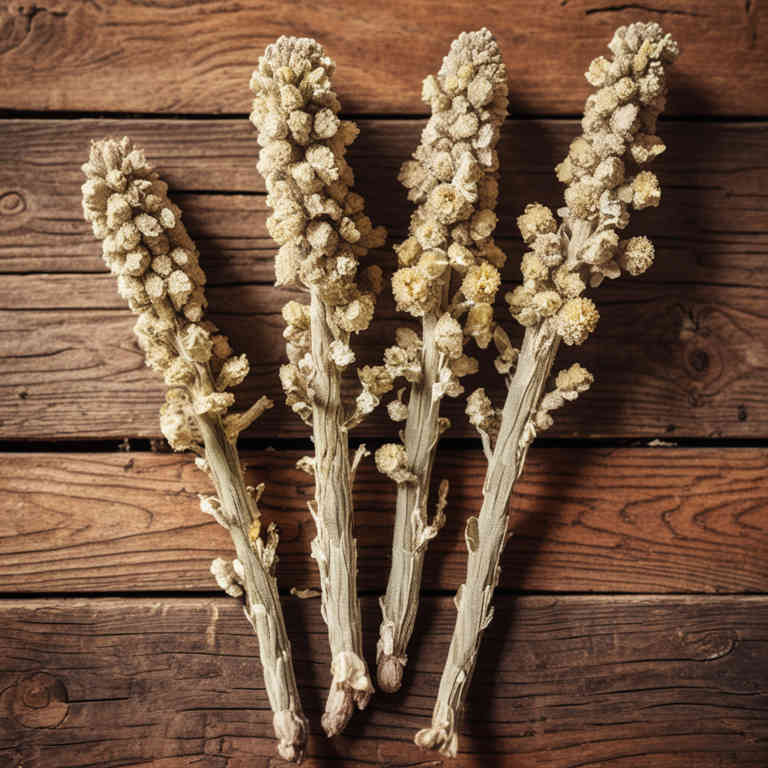Verbascum thapsus linctuse for medicinal use

Verbascum thapsus linctuse is a traditional herbal preparation made from the plant commonly known as common mullein.
It is typically prepared as a soothing syrup or tincture using the leaves and flowers of the plant. This preparation is valued in herbalism for its demulcent properties, which help to calm irritated mucous membranes. It is often used to relieve coughs, sore throats, and respiratory congestion.
In historical herbal medicine, it has been a popular remedy for respiratory ailments due to its mild and comforting effects.
Uses
Verbascum thapsus linctuse has been used to soothe respiratory conditions and alleviate coughs for centuries.
Historically, it was valued in ancient Greek and Roman medicine for its expectorant properties, helping to loosen mucus and ease breathing. Traditional herbalists used it as a natural remedy for bronchitis, colds, and other respiratory ailments. In modern times, it is still employed in some herbal formulations to support respiratory health, though scientific validation of its efficacy remains limited.
Its continued use reflects a blend of historical tradition and ongoing interest in natural remedies.
Benefits
Verbascum thapsus linctuse has health benefits such as soothing respiratory issues, reducing inflammation, and supporting immune function.
This herbal preparation is traditionally used to alleviate symptoms of coughs, sore throats, and bronchitis due to its demulcent properties. It contains mucilage, which forms a protective layer over irritated tissues in the throat and airways. The plant also possesses antioxidant and anti-inflammatory compounds that may help reduce oxidative stress and improve overall respiratory health.
Its mild and soothing nature makes it suitable for long-term use in managing chronic respiratory conditions.
Constituents
Verbascum thapsus linctuse active constituents include mucilage, flavonoids, and tannins.
These components contribute to its traditional use as a demulcent, helping to soothe irritated mucous membranes. Mucilage forms a protective layer over the throat, reducing inflammation and irritation. Flavonoids may provide antioxidant support, while tannins have astringent properties that can help reduce excess mucus.
This herbal preparation is often used to alleviate symptoms of coughs and sore throats.
Preparation
To make Verbascum thapsus linctuse, first gather fresh or dried leaves of the mullein plant, which is known for its soothing properties.
Wash the leaves thoroughly and chop them into small pieces to release their active compounds. Next, place the chopped leaves in a pot and add enough water to cover them by about an inch. Bring the mixture to a gentle boil, then reduce the heat and let it simmer for approximately 20 minutes.
Finally, strain the liquid through a fine mesh or cheesecloth to obtain a smooth, mucilage-rich linctuse that can be taken as needed for respiratory comfort.
Side Effects
Verbascum thapsus linctuse may lead to gastrointestinal discomfort, including nausea, vomiting, and diarrhea, due to its mucilage content.
It can also cause allergic reactions in individuals sensitive to the plant, manifesting as rash, itching, or respiratory symptoms. Prolonged use may result in dependency or reduced effectiveness over time. In high doses, it may irritate the stomach lining and cause inflammation.
It is important to consult a healthcare professional before using this preparation, especially for individuals with pre-existing medical conditions or those taking other medications.